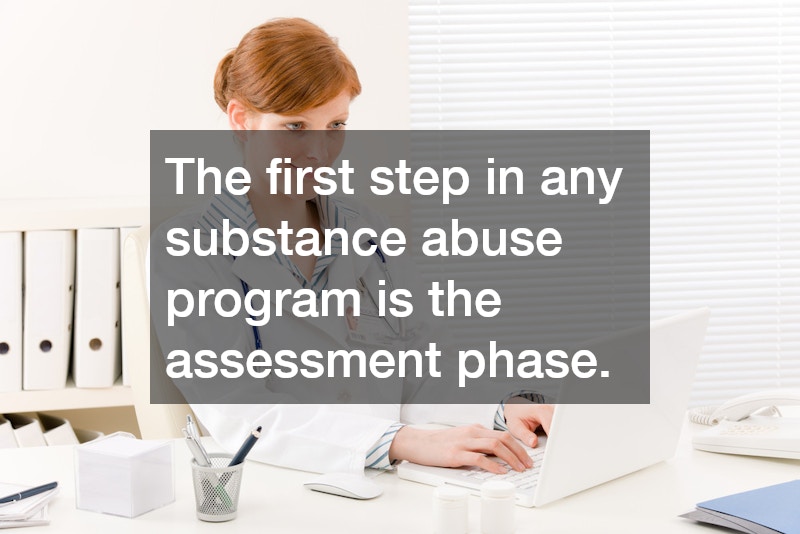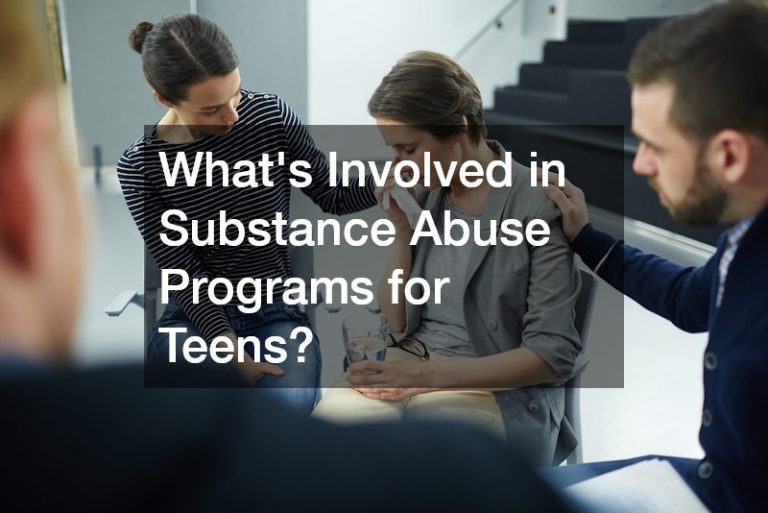Substance abuse is a serious concern among teenagers, and addressing the problem early can help prevent long-term consequences. Substance abuse programs for teens are designed to help young people overcome their addiction and learn healthier ways to cope with the challenges of adolescence. These programs typically offer a combination of therapies, support systems, and educational resources that guide teens toward recovery while addressing the underlying issues that may have contributed to their substance use.
Here’s a look at what’s involved in substance abuse programs for teens and how they work to provide long-term solutions for both teens and their families.
1. Assessment and Diagnosis
The first step in any substance abuse program is the assessment phase. During this process, healthcare professionals evaluate the teen’s substance use, including the type of substances used, frequency of use, and how long the abuse has been occurring. In addition to assessing the severity of the addiction, professionals will often conduct a psychological evaluation to determine if there are any co-occurring mental health conditions, such as depression or anxiety, that may be contributing to the substance abuse.
Accurate assessment is crucial for developing an effective treatment plan that addresses both the substance abuse and any underlying mental health issues.
2. Detoxification (If Necessary)
For teens who have developed a physical dependency on drugs or alcohol, detoxification may be the first step in their treatment. Detox involves clearing the body of the addictive substances while managing withdrawal symptoms under medical supervision. While not every teen will need detox, it’s an essential component for those who have been using substances heavily or for a long period.
Medical professionals closely monitor the teen’s physical and emotional health during this phase to ensure that the detox process is as safe and comfortable as possible. Once detox is complete, the teen can begin the therapeutic portion of their treatment.
3. Individual and Group Therapy
A core element of substance abuse programs for teens is therapy, which helps teens understand the reasons behind their substance use and develop healthier coping mechanisms. Therapy typically involves both individual and group sessions.
In individual therapy, teens work one-on-one with a counselor to address personal issues such as trauma, family problems, or peer pressure that may have contributed to their substance use. Cognitive-behavioral therapy (CBT) is commonly used to help teens recognize harmful thought patterns and behaviors and replace them with more positive and constructive ones.
Group therapy allows teens to connect with others who are going through similar experiences. These sessions provide a supportive environment where teens can share their stories, learn from each other, and build a sense of community. Group therapy also helps teens develop communication and social skills, which are crucial for building healthy relationships in the future.
4. Family Involvement
Family involvement is a critical part of substance abuse programs for teens. Family therapy helps address any dysfunction or communication issues within the family unit that may be contributing to the teen’s substance use. By involving parents and siblings in the treatment process, families can learn to support their teen’s recovery, establish healthy boundaries, and improve family dynamics.
In addition to therapy, many programs offer educational resources to help parents understand the nature of addiction and how to best support their teen’s recovery process.
5. Life Skills and Relapse Prevention
Teaching life skills and relapse prevention strategies is another key aspect of substance abuse programs for teens. These programs help teens develop the tools they need to navigate the pressures and challenges of daily life without turning to substances. Life skills training may include stress management techniques, healthy communication skills, and decision-making strategies.
Relapse prevention is equally important and involves teaching teens how to recognize triggers that may lead to substance use and how to respond to those triggers in a healthy way. Many programs provide ongoing support after treatment through follow-up therapy sessions or peer support groups to help teens maintain their sobriety.
6. Aftercare and Continued Support
Successful recovery doesn’t end when the program does. Many substance abuse programs for teens offer aftercare services to ensure long-term success. This might include continued therapy, support group meetings, and access to community resources. Aftercare helps teens stay on track and provides them with a safety net if they encounter challenges or triggers after completing the program.
Substance abuse programs for teens are comprehensive and multifaceted, designed to address both the physical and emotional aspects of addiction. With personalized therapy, family involvement, life skills training, and continued support, these programs help teens develop the tools they need to overcome addiction and build a healthier, more fulfilling future. Early intervention and the right treatment program can make all the difference in a teen’s recovery journey.
.












